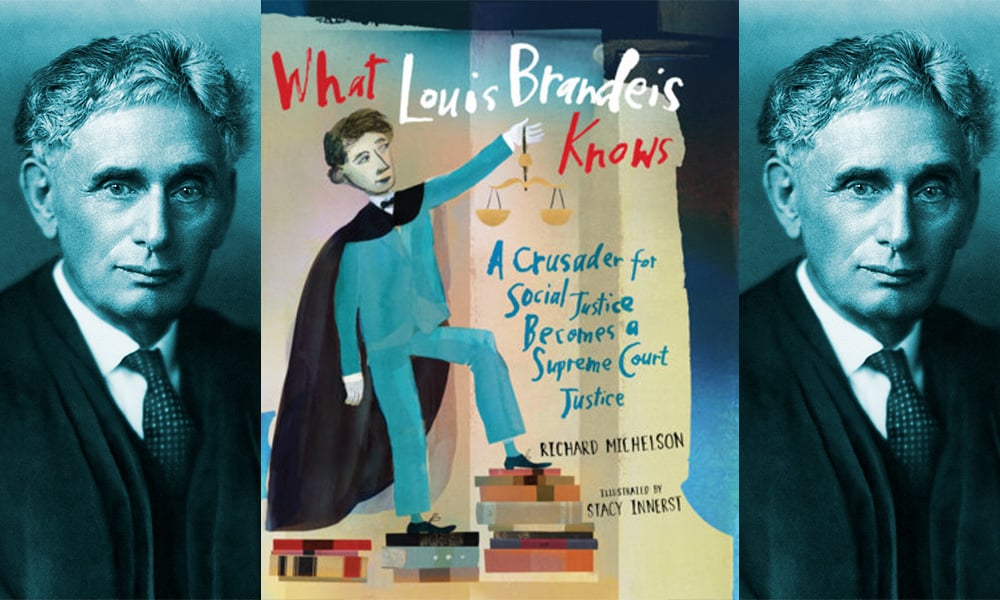Can the Legacy of Louis Brandeis Save American Democracy?

In 1910, a relatively unknown Boston lawyer named Louis Brandeis accused President William Taft of participating in a cover-up. Taft had allowed his secretary of the interior, Richard Ballinger, to engage in a corrupt backroom deal to sell mining rights to the same public recreation lands Taft had promised to protect. Brandeis, representing a government whistleblower, was excoriated in Congress for being “ungentlemanly,” “unsportsmanlike” and “just plain rude.” It was considered bad manners for any lawyer, not to mention a Jewish one, to cast doubt on a president’s honesty.
But because the attorney general’s office “didn’t get the memo,” they mistakenly produced the papers that Taft and his Department of the Interior had insisted didn’t exist.
Brandeis insisted that “the only title in our democracy superior to that of president is the title of citizen.”
Taft, and the press, publicly attacked Brandeis as a threat to America’s Anglo-Saxon elite with veiled, often antisemitic dog-whistles. Brandeis was called “aggressive” and “cunning.” Even in the face of overwhelming evidence, the congressional committee voted to exonerate Ballinger and the administration.
To counter the attacks, Brandeis insisted that “the only title in our democracy superior to that of president is the title of citizen.” And in fact, citizens did rally to his cause, even if Congress did not. Bowing to public pressure, Taft canceled J.P. Morgan’s contract to drill in the Alaskan coalfields. Preservationist Theodore Roosevelt challenged Taft in the next election, running on the third party “Bull Moose” platform and splitting off enough Republican votes that the Democrat Woodrow Wilson, parroting Brandeis’s progressive, antitrust policies, was elected. Following advice from Brandeis, Wilson lowered tariffs, making up the lost revenue by taxing the top 3 percent of wage earners.
Louis Brandeis dedicated his life to helping those less fortunate. He believed that “people with power should use it for the benefit of everyone without power.” He challenged monopolies and fought big business and corporate abuse. Due to his influence, fair wages, limited working hours, social security, unemployment insurance, health and safety regulation and the right of employees to organize are (for now) all protected by law.
Brandeis lived modestly, and he claimed his biggest splurge was ice cream. “Some men…delight in automobiles and yachts,” he wrote to his brother, “but my luxury is…the pleasure of taking up a problem and solving it for the people without receiving compensation.”
Once he had accumulated $1 million in assets, he decided his law firm would not turn away anyone seeking social justice who could not afford his fee.
“We may have democracy, or we may have wealth concentrated in the hands of a few, but we cannot have both” became his guiding principle, and he was soon doing most of his work to champion causes that would benefit society and help the poor. He became known as a crusader for social justice and “the People’s Lawyer.” It is thanks to Brandeis, that today, most law firms include some pro bono work in their practices.
In 1916, when Woodrow Wilson nominated him for a seat on the Supreme Court, Brandeis again faced the same veiled antisemitic accusations. His was the first contentious judicial appointment, and the confirmation process lasted for 125 days, a record for the time. He was attacked as a radical, a socialist, a muckraker and a traitor to his country.
It appeared Brandeis would not be confirmed. But once again, the citizens he had fought for came to the rescue. Senators were drowned in letters from clergy, teachers, social workers, students and laborers. On June 1, 1916, the Senate voted 47 members in favor and 22 against.
The son of immigrants, Brandeis was the first American Jew to sit on the Supreme Court. From 1781, when the court was first established, until Brandeis’s appointment, all 66 justices had been white, male and Christian.


While writing my book for children, What Louis Brandeis Knows: A Crusader for Social Justice Becomes a Supreme Court Justice, I was, of course, constantly reminded of how far, as a country, we have fallen from Brandeis’s vision. “If the government becomes the lawbreaker, it breeds contempt for law,” Brandeis wrote, and the proof is all around us. We have a president who prides himself on his lies and a Congress that follows suit. But that, I suspect, would not shock Brandeis. He was used to dealing with corrupt businessmen and autocrats.
What, however, would he make of a Supreme Court that rules in favor of granting presidential immunity from criminal prosecution and puts corporate interests above the populace? The greatest injustice, unimaginable to Brandeis, would be the lawyers working pro bono not for the poor but for the president.
Writing about American history for the young, it is my aim to leave them with hope for the future, even hope I might not myself believe in. How to do so in a county where immigrants are attacked without due process by masked police, while the richest 1 percent of our citizens hold more wealth than the bottom 90 percent?
Brandeis was an optimist. When he was in grade school, his teachers gave him articles written by experts so he could correct his errors. He trusted people to arrive at the truth if they were given the proper facts. When he argued, and won, his first case before the Supreme Court, he gathered more than 100 pages of scientific and social data to prove that long hours are dangerous to women’s health and safety. Soon, other lawyers began gathering evidence to support their legal arguments. They called their documents “Brandeis briefs” in his honor. Throughout his life, Brandeis continued to put his faith in education and in the citizens of this country.
Brandeis died 84 years ago—at age 84—on October 5, 1941. Many of the young readers of my books may still be alive 84 years from now. The world they inhabit might well be decided by the decisions of today’s Supreme Court justices and by whether we, the citizens, continue to speak out for the truth. As Brandeis said, “The most important political office is that of the private citizen.”
___________________________
Richard Michelson’s books have received a National Jewish Book Award and two Sydney Taylor Gold Medals from the Association of Jewish Libraries. His latest book is What Louis Brandeis Knows: A Crusader for Social Justice Becomes a Supreme Court Justice.
